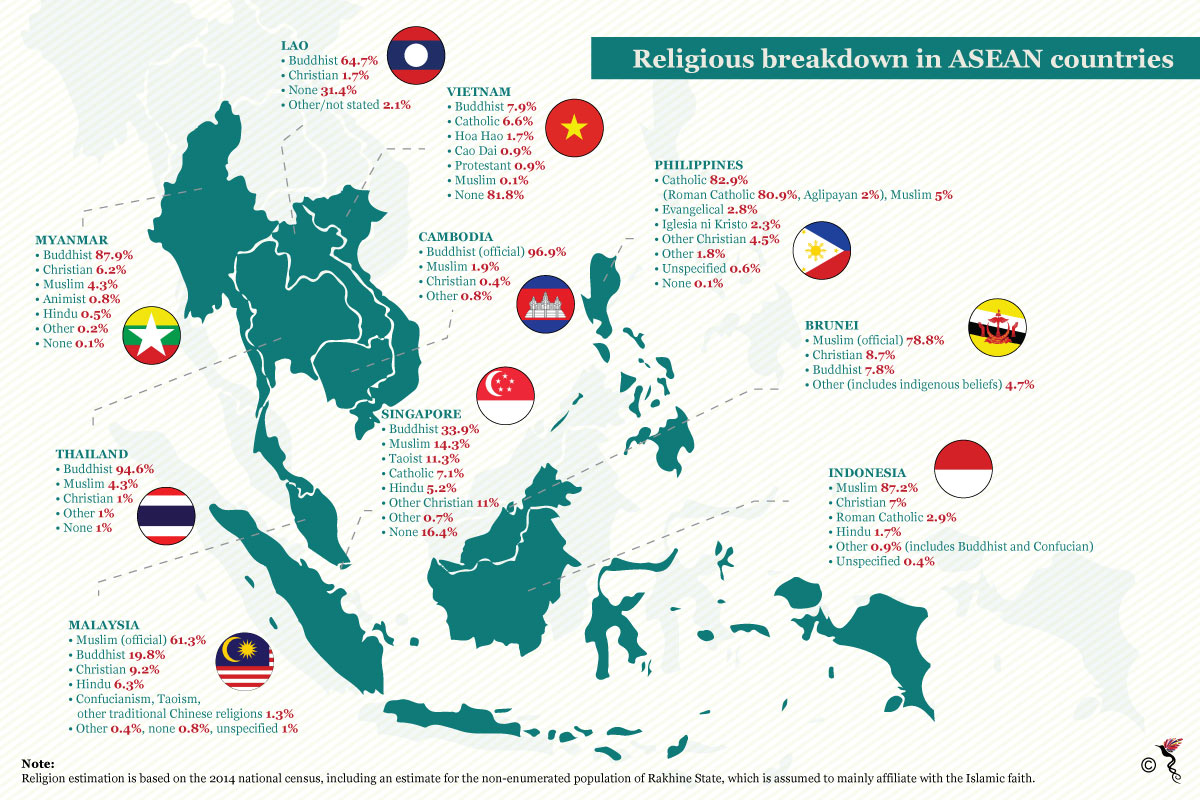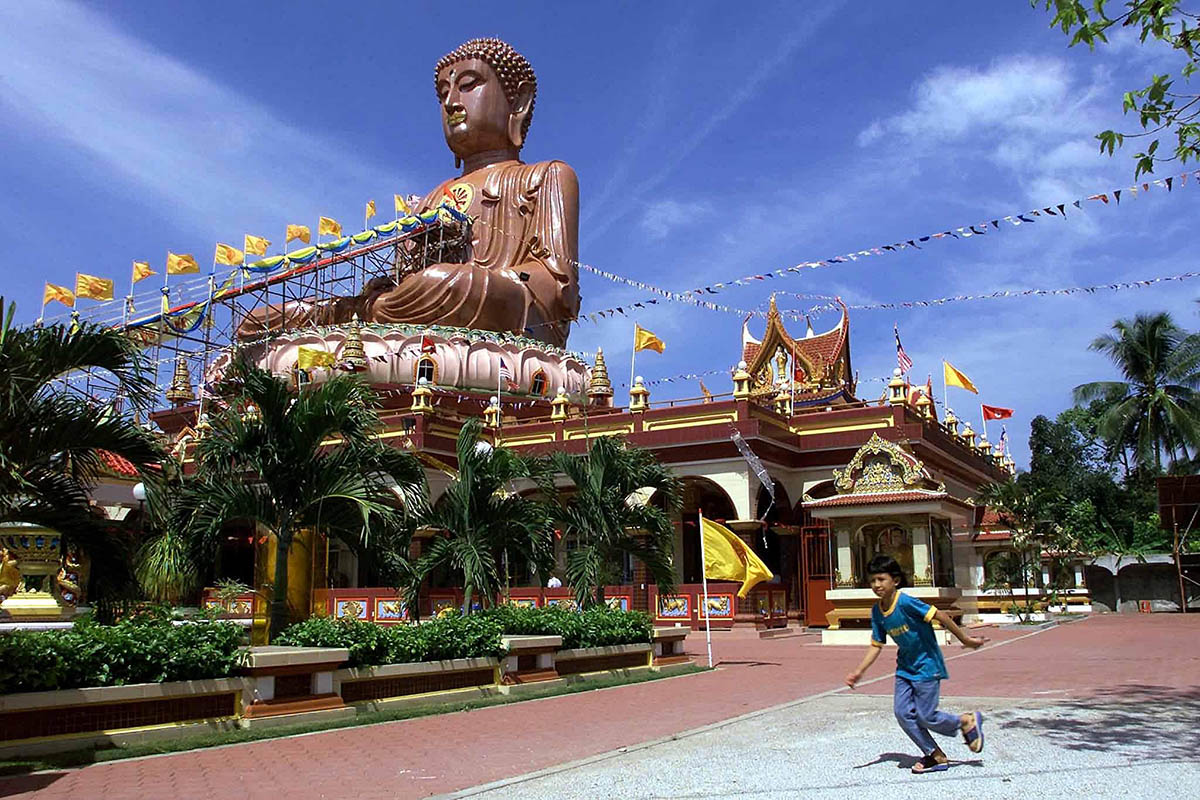Freedom of religious practise is a constitutionalised law that has been established in all 10 ASEAN countries. However therein lies the difference between establishing a law and enforcing it. Certain nations experienced severe backlash due to infringement on their religious practises caused by discrimination. These backlashes include minor societal debates over religion in Singapore as well as major demonstrations and peace rallies held in major ASEAN cities to protest against Myanmar's persecution of the Rohingya.
Overall, the ASEAN nations do not follow the guidelines of a secular society which would require the individual government to ensure that the right to individual religious freedom is balanced with the right to be free from religion. In fact, these countries adopt conditioned secularism.
According to the Diplomat, Thailand’s new constitution – Section 67 – has made it a state mandate to promote Theravada Buddhism. Thailand has seen long history of biasness towards Buddhism with the original constitution being implemented in 2007. Section 67 states that Buddhism and all its teachings are to be protected and any form of desecration towards either can be suppressed by the state. The constitution was heavily opposed by the Muslim population of Thailand, however it was still passed.

Religious breakdown in ASEAN countries. Source: CIA (Central Intelligence Agency).
Similarly, countries like Cambodia, Malaysia, Brunei and the Philippines – whom exercising freedom of religious practise while already having an official religion – are able to maintain religious harmony and pluralism in culture and religion. While the act of accommodating various religious identities is used to build a unified national identity and promote economic growth, it is still not going to be an easy or peaceful route. There are still issues and biases that will be present within these developing nations such as internal pressure within Cambodia to follow Buddhism and the Islamic domination in Malaysia’s religious landscape. The reason these developing countries are still able to grow and maintain religious harmony is due the the lack of infringement on the public’s freedom of religion.
In a journal published by the Institute on Culture, Religion & World Affairs of Boston University, President Sukarno – the first president of Indonesia – was aptly quoted saying, “I am not prohibiting any person from propagating his ideology. But, remember, absolute unity, absolute unity, absolute unity, put the emphasis on unity. Do not throw it into jeopardy. I am thinking of the Christians.. thousands of Christians died in the struggle to defend freedom… Should we not value their sacrifices, too? Their hope is to be with all of us members of a united and free Indonesian people. Do not use the term ‘minorities,’ no!”
